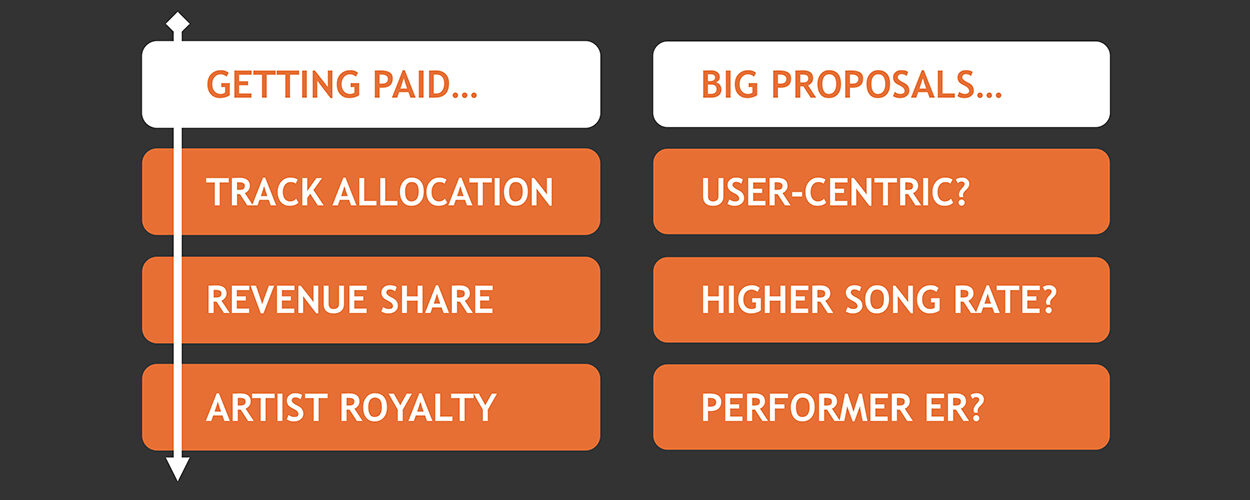

The CMU webinars are back! On Monday, we began the Music Business Trends 2022 series, summarising all the key developments of the last twelve months in the music industry. There are two more sessions in that series taking place this month.
Then, in the new year, we will present The Digital Dollar Debates, a new three-part webinar series that will allow you to navigate and understand all the ongoing debates around the economics of music streaming. We’ll summarise all the issues and explain the ideas and arguments put forward by all parts of the music community. The sessions are as follows…
HOW THE STREAMING BUSINESS WORKS Monday 16 Jan 2.30pm To participate in all the digital dollar debates, you need to understand how the streaming business model works. In this webinar we run through the licensing deals negotiated between the music industry and the key digital services, explaining how everyone gets paid.
THE DIGITAL PIE DEBATE Monday 23 Jan 2.30pm Is the way streaming revenue gets shared out across the music community fair? Many people argue it is not and have proposed alternative approaches to slicing the digital pie, some of which involve changes to copyright law. This webinar explains each of the proposals.
THE DATA & TRANSPARENCY DEBATES Monday 30 Jan 2.30pm Issues around music rights data create complexities and inefficiencies in the digital music market. Meanwhile, a lack of transparency makes it difficult for music-makers to understand how different digital services impact on their own artist businesses. This webinar sets out the issues and considers the proposed solutions.
You can attend each webinar live as it is delivered or on demand after the live session.
Click here to find out more and book your place
This site uses cookies to enhance your experience - you can manage these in your browser settings.
CLICK ACCEPT to continue. CLICK HERE for full details on our privacy, data and cookies policy.
This website uses cookies so that we can provide you with the best user experience possible. Cookie information is stored in your browser and performs functions such as recognising you when you return to our website and helping our team to understand which sections of the website you find most interesting and useful.
Strictly Necessary Cookie should be enabled at all times so that we can save your preferences for cookie settings.
If you disable this cookie, we will not be able to save your preferences. This means that every time you visit this website you will need to enable or disable cookies again.